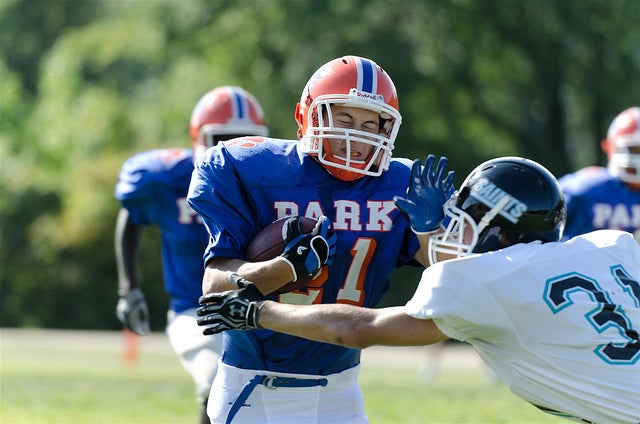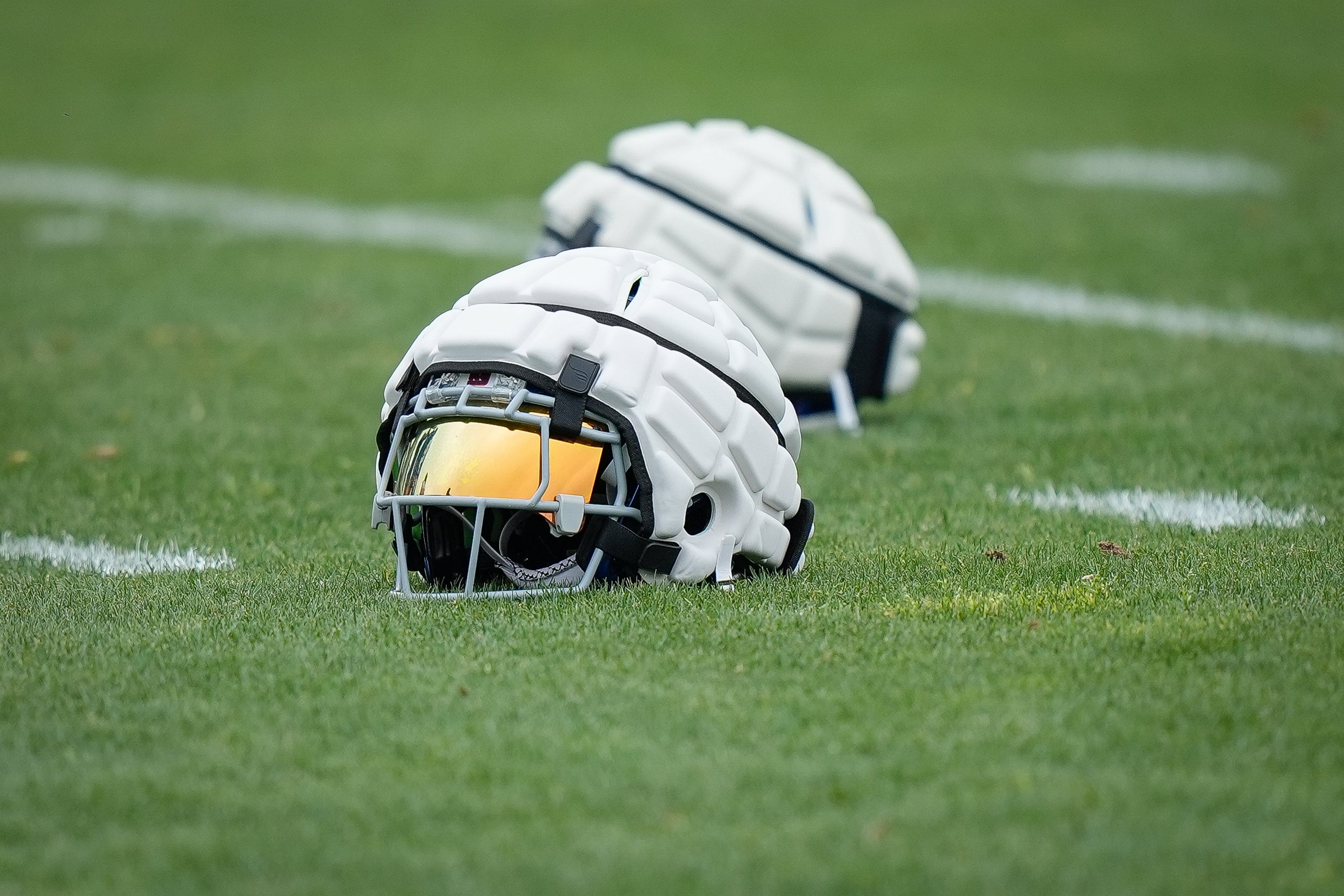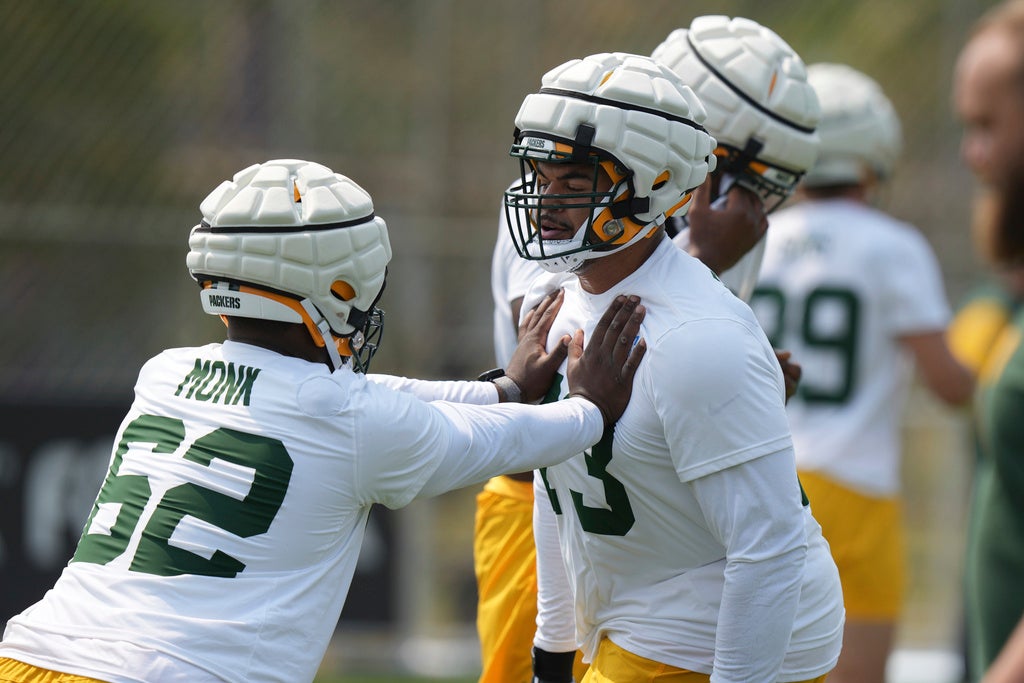A new study from University of Wisconsin researchers suggests that the type of helmet a football player wears may not be a factor in lowering the risk of concussion.
According to the researchers, anywhere from 6.5 to 9 percent of football players get concussions, and there are a variety of factors, hits, or falls that can cause the sport-related injury. For some time, manufacturers have also claimed that their helmets are able to better protect players from concussions, and stress the importance of getting new equipment to parents and team managers.
However, UW researchers have now found that a regulation football helmet’s brand and age does not make a difference in preventing concussions. The study they conducted looked at 2,100 Wisconsin high school football players who played during recent seasons.
News with a little more humanity
WPR’s “Wisconsin Today” newsletter keeps you connected to the state you love without feeling overwhelmed. No paywall. No agenda. No corporate filter.
UW Health Sports Medicine Center senior scientist and study co-author Tim McGuine said this finding can help alleviate parents’ fears.
“They need to be aware that the helmets that their schools are buying are fine,” said McGuine. “They don’t need to be bought in the hype that, ‘Oh, I need to purchase my son’s own helmet for $300, $400 because my school’s isn’t good enough.’”
Wisconsin Interscholastic Athletic Association Deputy Director Dr. Wade Labecki said the research reinforces the notion that helmets are not going to stop concussions. Rather, he said, the solutions to lowering risk include “better tackling techniques, better blocking techniques and better rules can help reduce concussions.”
The study, which was published recently in the American Journal of Sports Medicine, also found that a player’s age, height and weight, and years of playing football don’t impact the risk of a concussion.
Wisconsin Public Radio, © Copyright 2025, Board of Regents of the University of Wisconsin System and Wisconsin Educational Communications Board.







